How One Conversation Can Change Everything
Who needs therapy when you've got friends like mine?
Context: Last week I wrote about a traumatic event from my childhood. At 6 years old, I convinced my friends that we should build a cubby house at school and delegated everyone some materials to bring. But unlike them, who presumably realised it was a silly idea and immediately forgot all about it, I actually convinced my mother to help me put together a bunch of splintery old wood from the renovations at home and carried it in the next day. Upon arrival, I suddenly realised I was stupid for ever thinking it was a good idea. I never told anyone that it was me who had left the wood on the step in front of the prep classroom.
The comments that you left were sympathetic and kind:
…take that memory and store it carefully and lovingly and reverently in an internal memory palace. And when we do it we say something like 'you still mean something to me, which is why I'm putting you here in this safe place. But you're not allowed to influence me anymore.', said Evelyn.
I imagine everyone has those hidden stories of shame that are much bigger than many would think they are (I know I do), said Andrew.
Friends and family members said it was funny how these mistakes seem so big and overwhelming when we’re small, and that I was so young, I couldn’t have known any better.
But one of you said this:
I don’t know why you think or thought bringing wood to school was shameful.
I Lol’d, and replied that I’d included a numbered list. For one, you can’t make a cubby out of a few old bits of wood. For another, we didn’t have a permit to build on the school grounds. Plus, you know, we were six.
This was the reply:
But that wasn’t the end of it. The conversation went on. I’m just going to share it all because it’s better than trying to explain or rewrite it.
I don’t know how to wrap this up.
You tell me……




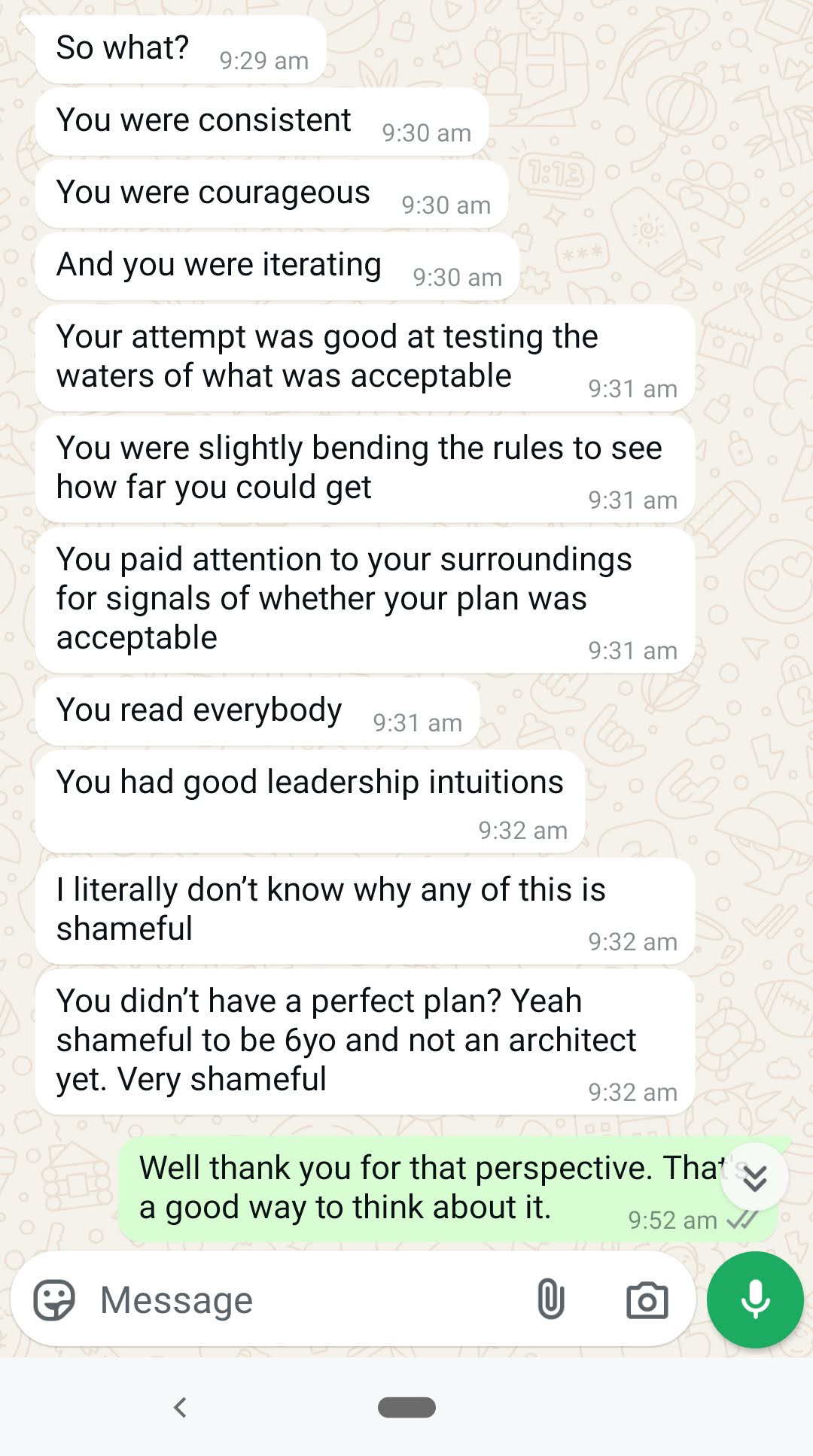
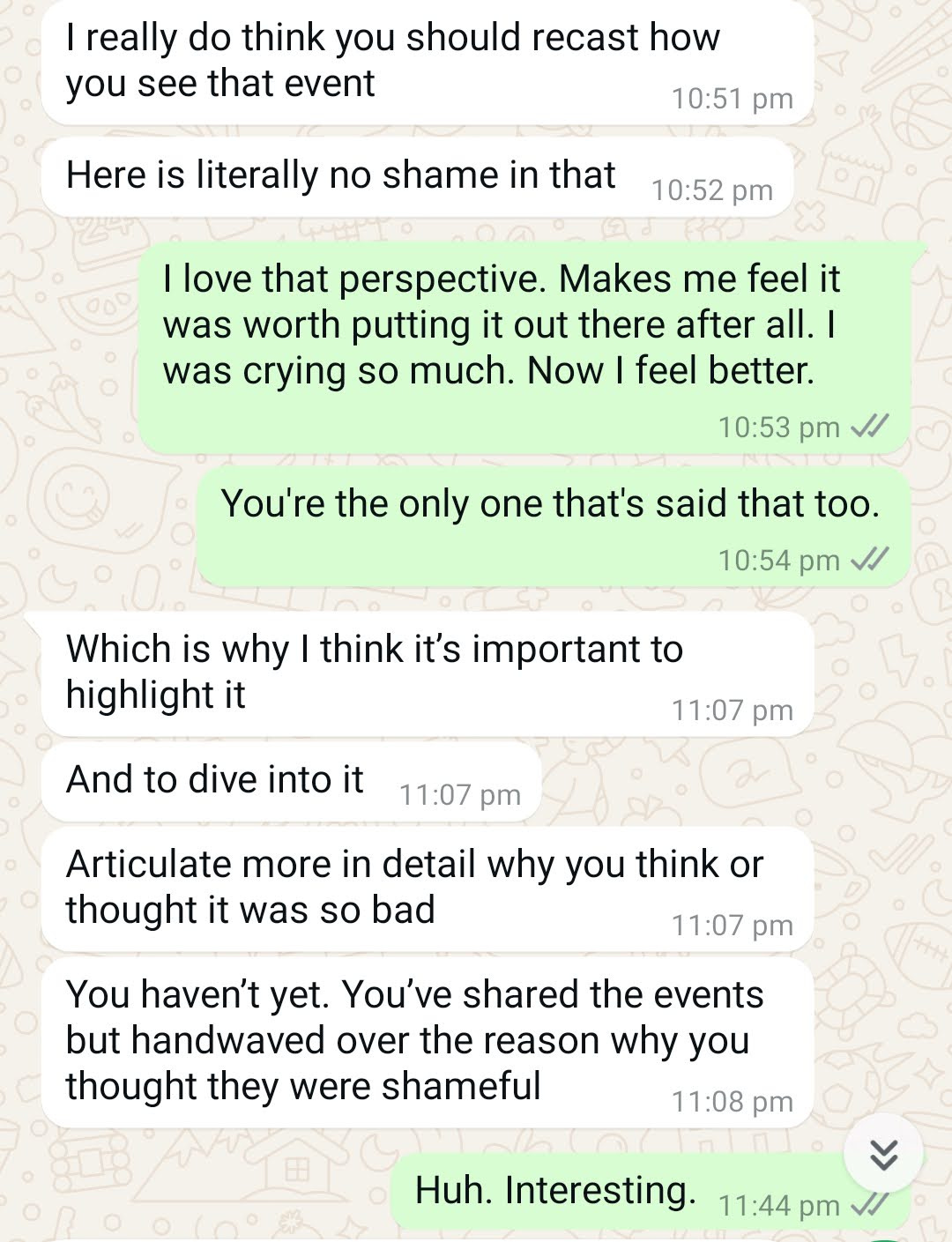
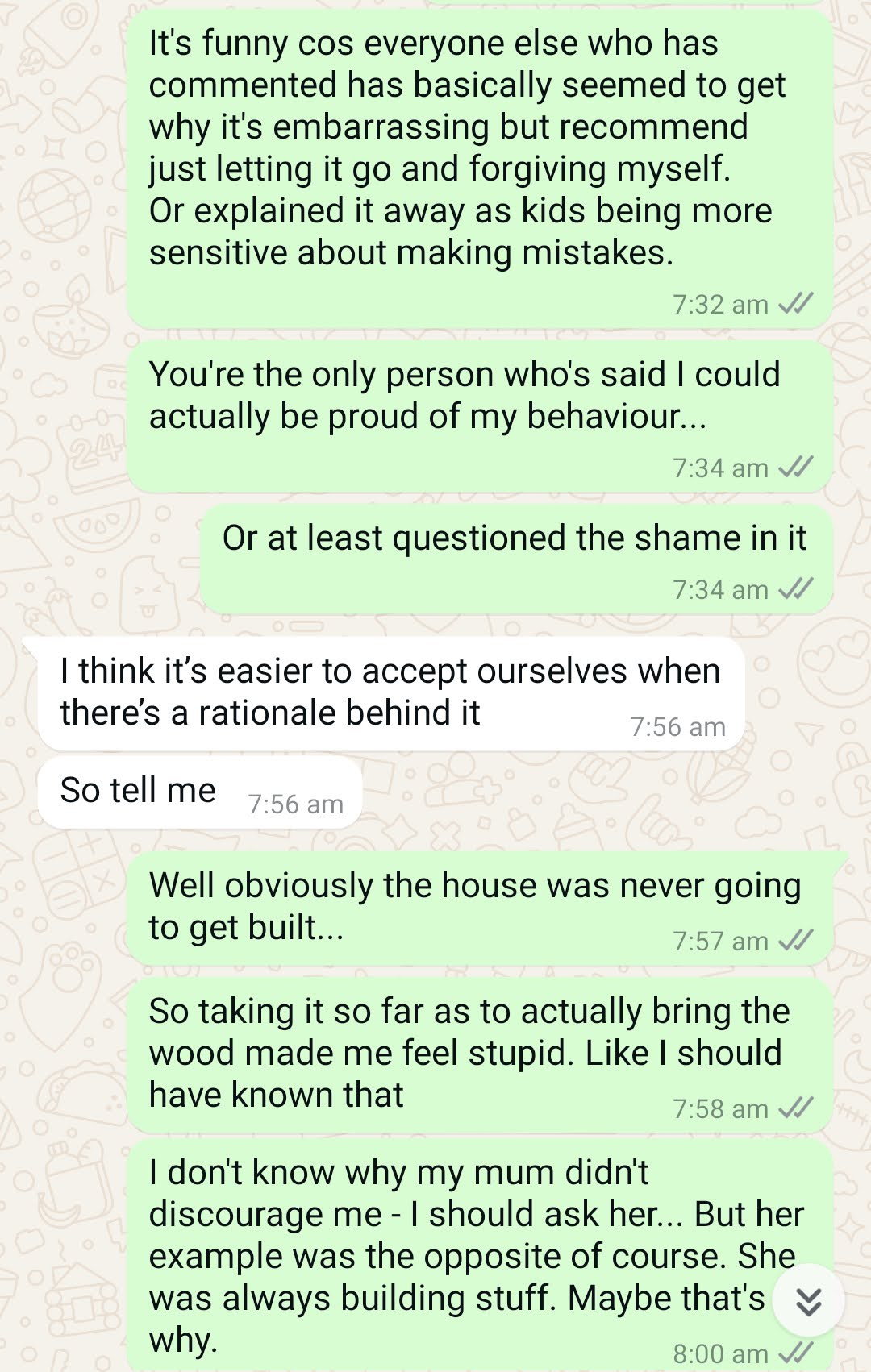

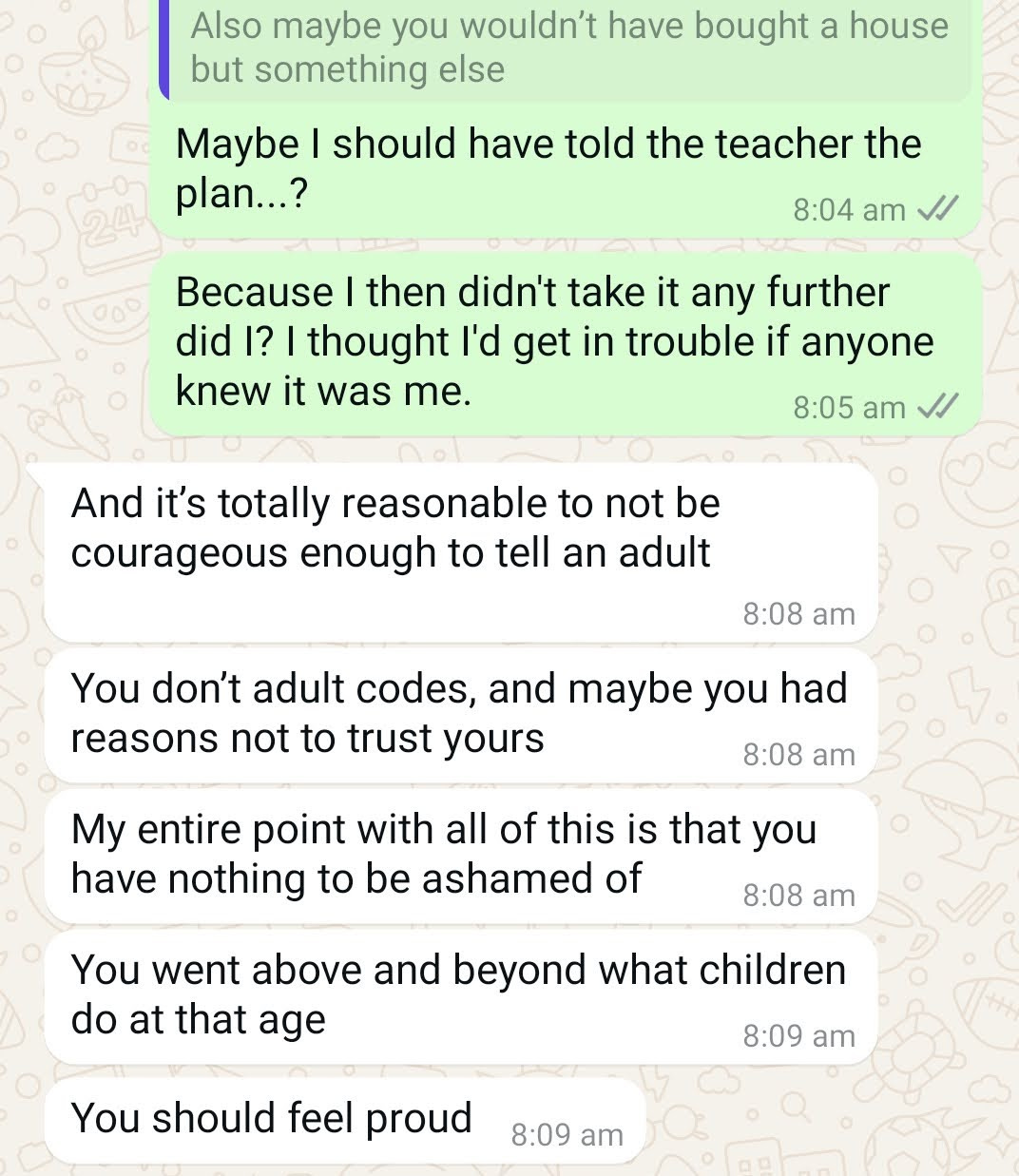
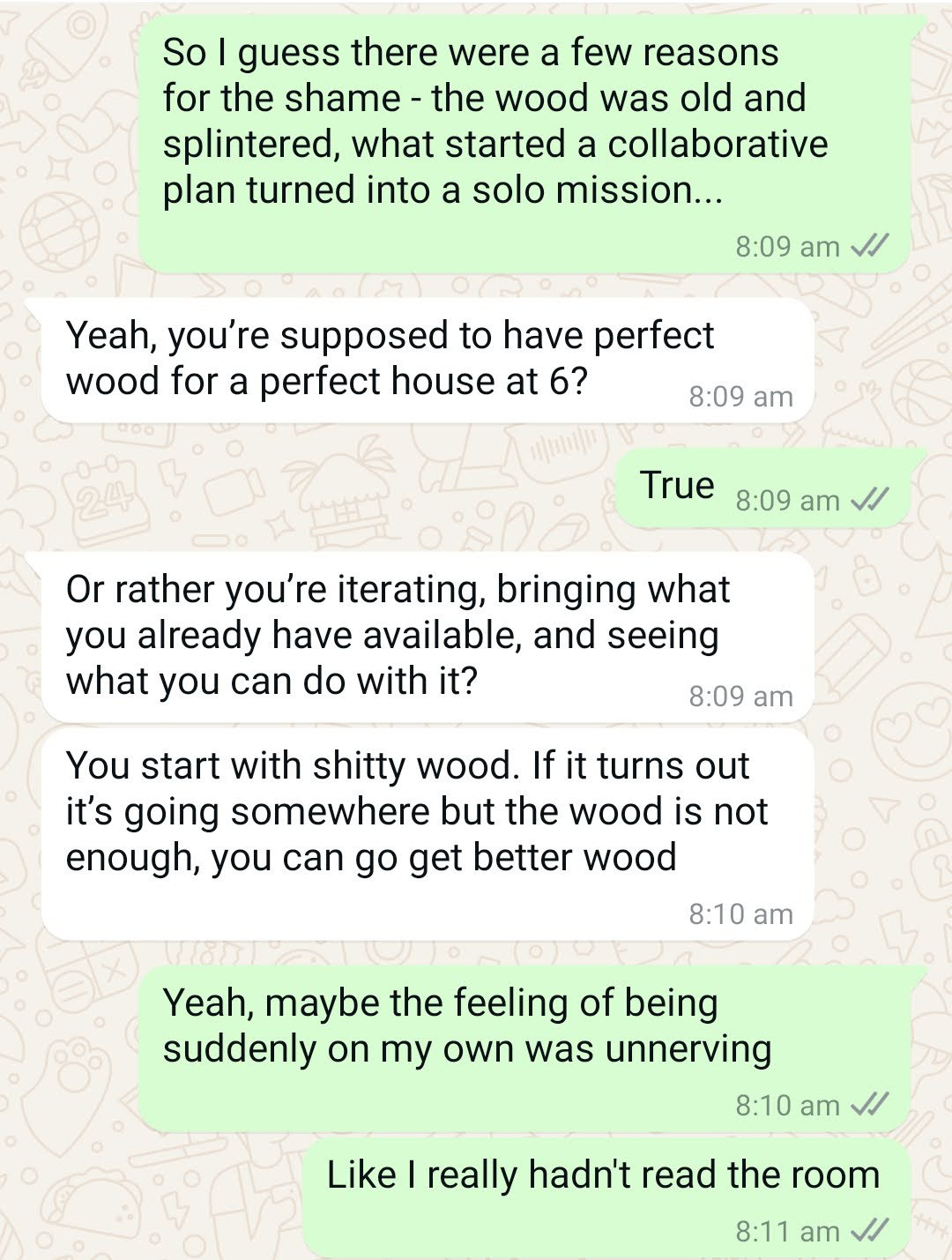


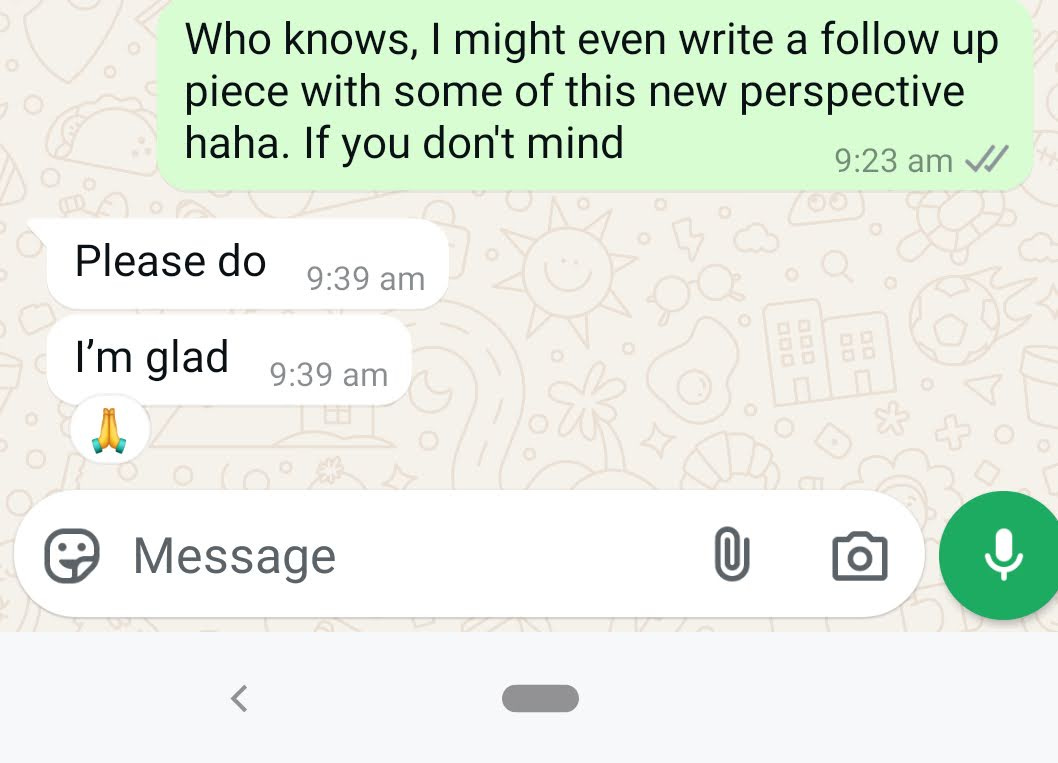
Love the new perspective here. I think we mostly forget that young children don't really see themselves as an adult would. They judge themselves by adult standards from the get go, but looking back we can finally apply the compassion that the situation needed. Well done to you for the re-frame.xxx
That's a great conversation. Most therapists would be too scared to be that insistent, though, bordering on harsh. Too worried about seeming insensitive, that is. But clearly it needed to be said and you needed to hear it.
So, yeah - seeing things from another perspective in order to bring out all the positives clearly works. Perhaps you were still seeing the whole episode from your original 6 yo perspective, so from the strongest emotion you remember from the time, that being shame. The shame must've come after all those positive actions, so you focus on that, since that's what you were left with in your mind.
Makes a lot of sense. I have lots of shame, of course, but what led to that was a very creative survival adaptation which worked. So there is a source of pride there.
As, indeed, does sharing make a lot of sense. Not sure who your interlocutor was, but good for them!